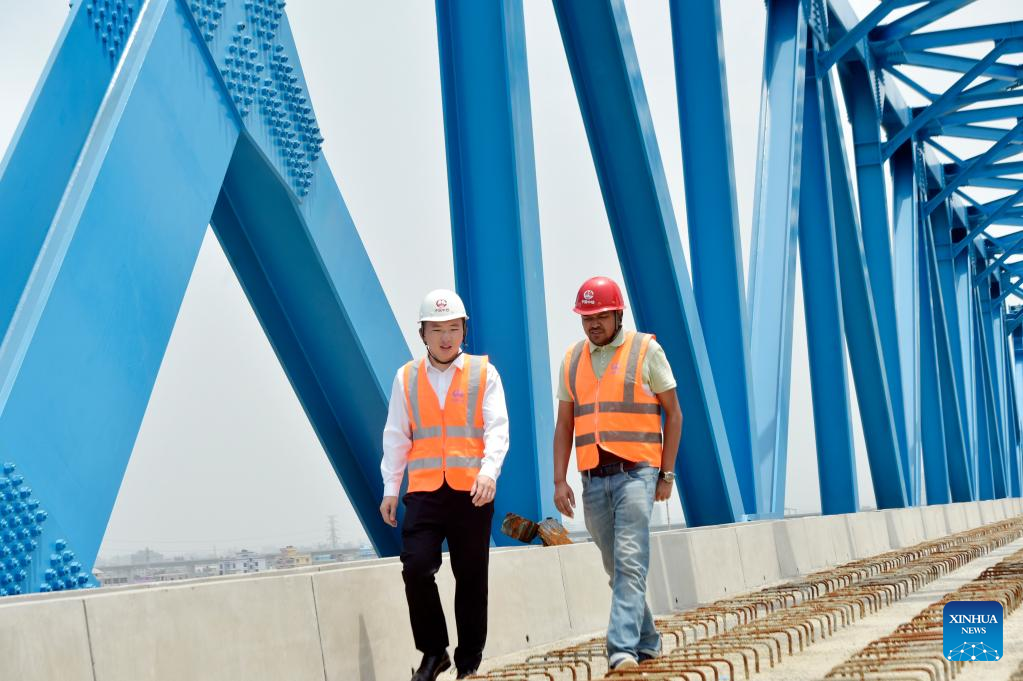
Zhang Yadong (L), an engineer from China Railway Group Limited, works with a Bangladeshi man on the Padma Bridge Rail Link Project in Dhaka, Bangladesh on May 2, 2023.(Xinhua)
by Sun Nan
DHAKA, May 4 (Xinhua) -- In Dasherkandi village, located around the Bangladeshi capital Dhaka, local children happily swam in the clean river under the scorching sun. Deng Mingze, deputy manager of the Dasherkandi Sewage Treatment Plant project, felt elated as he observed this scene.
"Things were completely different before," explained the 33-year-old Chinese engineer from PowerChina Chengdu Engineering Corporation Limited, adding that untreated sewage went straight into the river, making it so dirty in the past.
The Dasherkandi Sewage Treatment Plant, financed by the Export-Import Bank of China and constructed by HydroChina Corporation, a subsidiary of PowerChina, started operation in April 2022. It marked the first modern large-scale sewage treatment plant in Bangladesh, capable of providing modern sewerage services to approximately 5 million people in Dhaka.
From then on, all water that flows into the river has been treated, making the river clear and visible to the naked eye, Deng said, citing that children frequently play in the area.
However, the project was not without its challenges. During the busiest period of construction, Deng and his colleagues worked from 6 a.m. until late at night for nearly six months.
As the saying goes, "no pain, no gain." Deng recalled that despite difficulties throughout the project, he became stronger mentally and more capable.
"As young people, we should have adaptability, innovation and problem-solving skills while working on the Belt and Road Initiative (BRI) projects to demonstrate the positive spirit of the Chinese youth to the world," he stressed.
In Keraniganj, on the outskirts of Dhaka, Zhang Yadong, an engineer from China Railway Group Limited, is working alongside his local colleagues on Bangladesh's largest BRI rail project.
Zhang arrived in Bangladesh right after his graduation in 2016, and he vividly remembers his initial struggles. "The first difficulty I encountered was having a meeting with the quantity surveyor to discuss measurements independently. It took me a long time to communicate with him due to differences in our understanding of the measurements," he said, adding that "it was a small thing, but I was really nervous at the time."
Using this experience as a foundation, Zhang has grown from an assistant economist to a commercial executive, working on key projects such as the 172-km Padma Bridge Rail Link Project that connects over 20 districts in Bangladesh.
In early April, the project, financed by the Export-Import Bank of China and constructed by China Railway Group Limited, conducted a successful test run of the train. Despite the challenges during construction such as the outbreak of the COVID-19 pandemic, Zhang said all the efforts were worthwhile when he saw the first train travel on a newly-built BRI railway on Bangladesh's largest Chinese-built Padma Bridge.
The BRI, a reference to the Silk Road Economic Belt and the 21st Century Maritime Silk Road, was initiated by China in 2013 to build trade and infrastructure networks connecting Asia with Europe and Africa on and beyond the ancient Silk Road trade routes.
In recent years, Bangladesh has actively participated in the BRI and has cooperated with China on many infrastructure projects, including the Dhaka Elevated Expressway.
The project is expected to employ more than 10,000 people during the construction and reduce travel time from the airport to the N1 national highway to about a quarter of the original time upon its launch.
Yao Yao, the finance manager of the Asia-Pacific company of China Shandong International Economic and Technical Cooperation Ltd., the investment platform of Shandong High-Speed Group, is proud to work on this project.
"I arrived in Bangladesh in March 2020, just one month before the project financing was closed. We had to work overtime every day to communicate with the local government, bank agents and legal advisers to meet various requirements within such a limited time. Fortunately, we secured the first bank loan in early April," Yao said, adding that completing the expressway as scheduled was not easy, "but our whole team was great."
The team Yao mentioned is a youth group consisting of 12 members, with the youngest being born after 2000 and the oldest in the 1980s, and an average age of less than 30. At every crucial stage of the project, young engineers spontaneously built a team to ensure its success.
"Everyone on the team is positive, enthusiastic and dynamic," he said. They also organize badminton and basketball games in their spare time. "Busy but fulfilling. Balancing work and life is what young people should strive for."
"Young people involved in the BRI projects are not just constructors but also a shining light of China and the bond that connects China with other countries. We must do our best," Yao added. ■
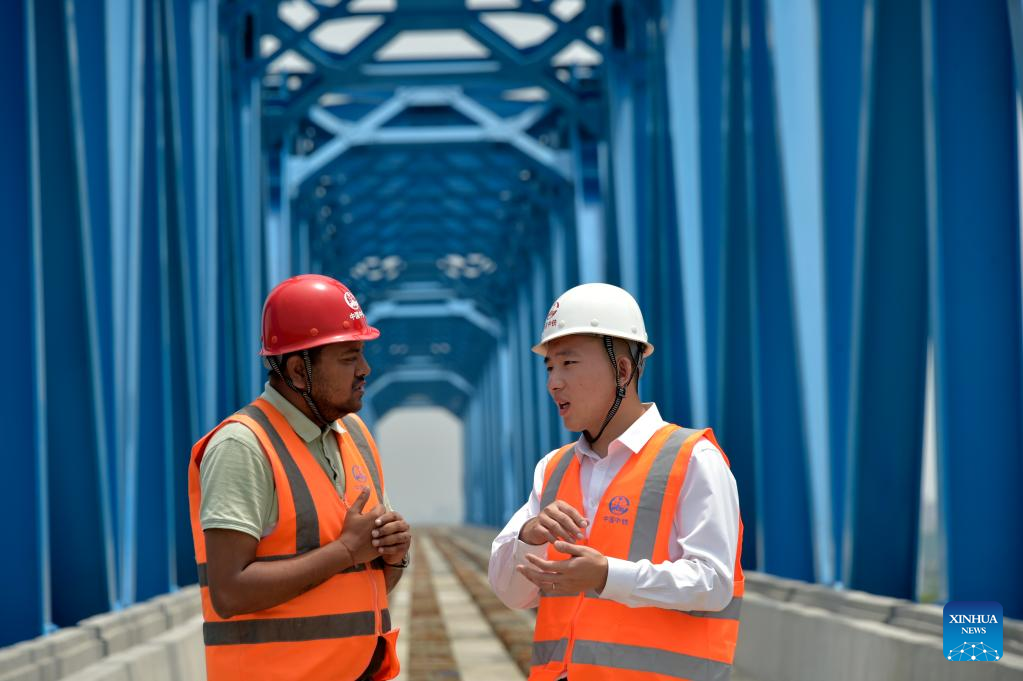
Zhang Yadong (R), an engineer from China Railway Group Limited, works with a Bangladeshi man on the Padma Bridge Rail Link Project in Dhaka, Bangladesh on May 2, 2023.(Xinhua)
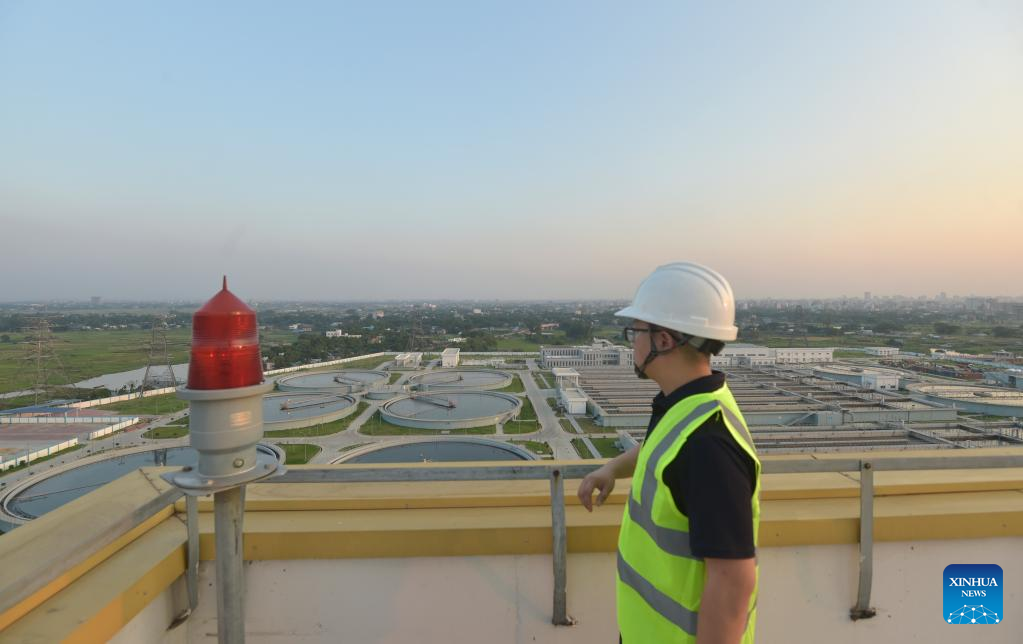
Deng Mingze, deputy manager of the Dasherkandi Sewage Treatment Plant project, checks the running status of the project in Dhaka, Bangladesh on May 2, 2023.(Xinhua)
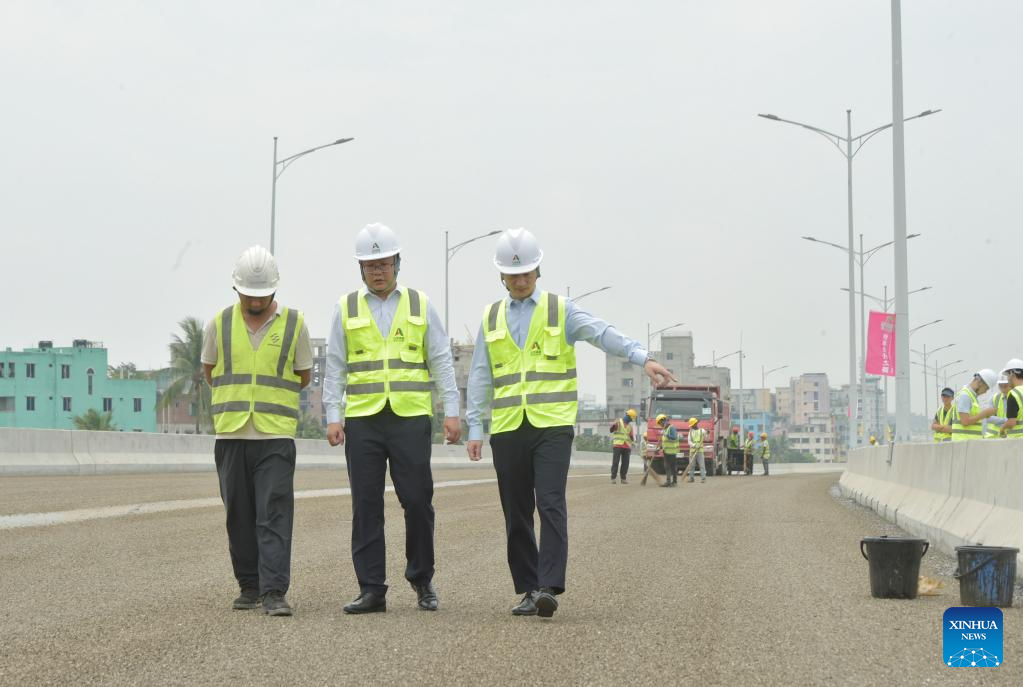
Yao Yao (1st R), the finance manager of the Asia-Pacific company of China Shandong International Economic and Technical Cooperation Ltd., works for the Dhaka Elevated Expressway project in Dhaka, Bangladesh on May 3, 2023.(Xinhua)
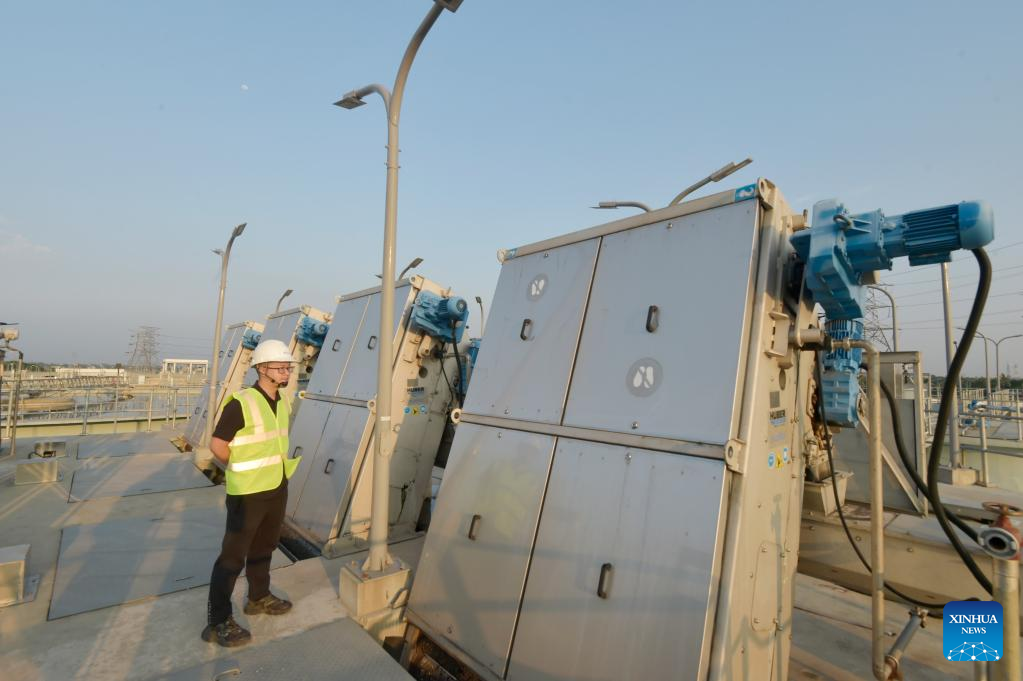
Deng Mingze, deputy manager of the Dasherkandi Sewage Treatment Plant project, checks the running status of the project in Dhaka, Bangladesh on May 2, 2023.(Xinhua)
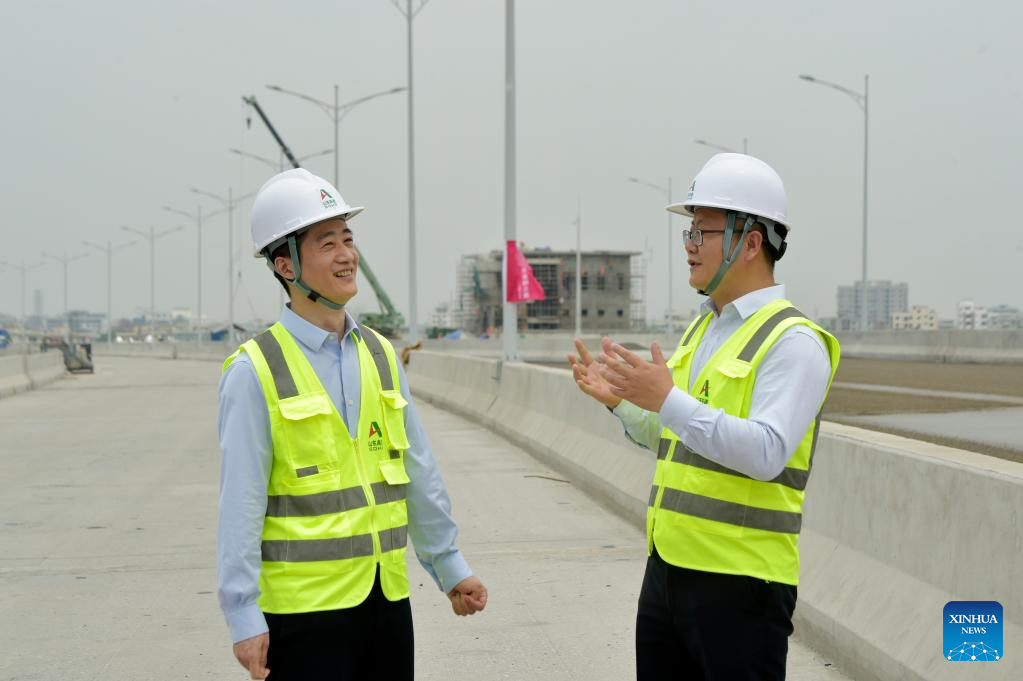
Yao Yao (L), the finance manager of the Asia-Pacific company of China Shandong International Economic and Technical Cooperation Ltd., works for the Dhaka Elevated Expressway project in Dhaka, Bangladesh on May 3, 2023.(Xinhua)



